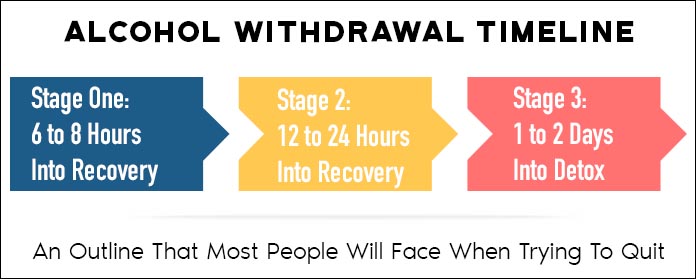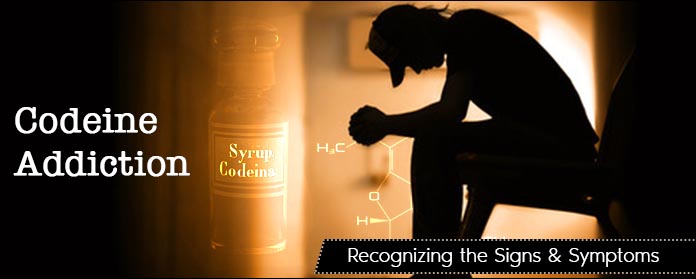Breaking an alcohol addiction isn’t easy and the body will undergo physical and mental withdrawal symptoms. Here is an outline of an alcohol withdrawal timeline that most people will face when trying to quit.
Getting sober is hard enough from a psychological standpoint – but it’s even harder (at least at first) on your body.
It’s almost unfair. You’re trying to make a positive change in your life and for the first week, it’s going to feel like your body is punishing you.
It’s not fun – but the only way past this stage is by going “through” it. Learn what to expect with our alcohol withdrawal timeline below.
What is Alcohol Detox?
They say that the human body can get used to just about anything. That’s why people can live in prison or war situations without their bodies just giving up.
POW’s aside, your body gets used to alcohol too. And when you take it away, especially if you’ve been using excessive levels, it freaks your body out.
The medical term for “freaking your body out” is alcohol withdrawal or that occurs during detox. It’s a three-step process that’s very uncomfortable and could last for a week or more, if not handled the right way.
It’s important to understand that trying to quit alcohol can be dangerous or even fatal depending on the length of the addiction and the amount of daily use. Never try to quit cold turkey alone or at home if the alcohol addiction is serious.
The best way to detox is at a medically assisted detox or recovery treatment center. Not only is this a safe environment, but they have trained addiction professionals on staff to oversee the entire detox progress and manage withdrawal symptoms.
If symptoms become too uncomfortable, medication is available to treat the pain or discomfort. The process of detox is going to be unpleasant – so why not minimize as much of the suffering as possible?
The Alcohol Withdrawal Timeline
Okay – let’s get into the details. What does the detox process look like from the time an alcoholic has had their last drink?
There are three stages to alcohol withdrawal as follows…
Stage One usually begins 6 to 8 hours after the last drink, Stage Two can last up to three days, and Stage Three can last a full week, or longer. These are general timeframes that most people will experience when trying to quit using alcohol.
 Stage One: Six to Eight Hours Into Recovery
Stage One: Six to Eight Hours Into Recovery
Each stage has a different type of discomfort. The effects from one stage can overflow into the next, so it’s important to understand that these symptoms don’t have hard boundaries on their timelines.
Headaches
Most recovering alcoholics describe the first few hours of stage one as similar to a hangover. The headache in this stage is no exception.
It’s a response to the dehydration most people experience, because alcohol is a diuretic that causes fluid loss, usually in the form of having to pee a lot.
It’s normal for these headaches to get worse as the hours of detox get longer.
Nausea and/or Vomiting
Like during a bad hangover, it’s not uncommon for people have nausea or bouts of throwing up in the first stage. The stomach lining becomes irritated from the acidity of the ethanol in the alcohol and the influx of sugars.
More stomach acid than normal is cause from ingesting heavy amounts of alcohol, which greatly induces the general stomach discomfort.
Sweating and Trouble Sleeping
It would be much easier if it was possible to simply sleep through this stage, but most people can’t get much if any sleep during this phase of the process.
Not only is this an uncomfortable period, but anxiety usually creeps in compounding the effects of alcohol and these combine to interrupt sleep quality. Many people often also sweat profusely and feeling hot, which is due in part because body is sweating out the toxins, which further causes sleep difficulties.
Other possible symptoms in this stage include tremors and cravings for alcohol.
Stage 2: General Discomfort and Continued Stage 1 Symptoms
As a person enters the twelve to twenty-four hour marks since the last drink, they begin experiencing the second stage of alcohol withdrawal. Many times it won’t necessarily feel any different from stage one.
Most people can expect to feel the effects of being dehydrated and usually won’t have much of an appetite. Many people develop malnutrition (in a light form) in this stage.
Finally, some people may experience hallucinations during these hours, but they won’t be the “psychedelic” kind. If hallucinations do present themselves, it’s important to know this is a natural occurrence of withdrawal and to make sure there is someone to help stay grounded in reality.
Stage three will be up next, which is by far the most dangerous stage, and this is the most important time to be in the presence of a trained professional.
Early Stage 3: A Day to Two Days into Detox
Stage three can last for up to a week, but the first 48 hours are the most intense. Amy Winehouse died in this stage of withdrawal, and it’s necessary to be in a safe and supportive environment for the duration.
Let’s get the dangerous and potentially deadly symptom out of the way first. It’s called Delirium Tremens and about 4% of addicts experience them.
Delerium Tremens or DTs are the body’s extreme reaction to the detox process. These can often be accompanied by seizures or seizing muscles, sweating, and an increased heart rate.
People going through DT’s can easily become overheated, and most experience some sort of “departure” from reality (hallucinations or a delirious state).
Of all the people that get DT’s, about three to four percent die from them. Some of those deaths are from actions people take from their hallucinations and delirium, but others are biological deaths from a decrease in brain function.
DT’s are scary and they can kill – which is one of the main reasons to go through detox in a supervised treatment center. They’re not common – but it’s ultimately not worth the risk to try detoxing from alcohol addiction alone or at home.
Other symptoms in this stage include:
- Grand Mal Seizures
- Low Blood Sugar
- Mood Swings
Most mood swings can last up to a week – along with a risk of depression and higher levels of anxiety.
Alcohol detox is an important first step to recovering from alcohol addiction and having a better understanding of the alcohol withdrawal timeline will help those considering treatment. It won’t be easy but it will definitely be worth it.





